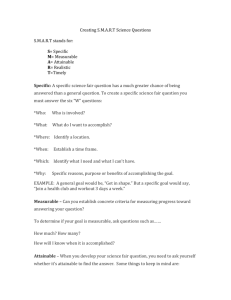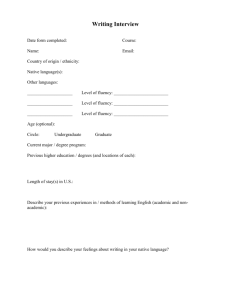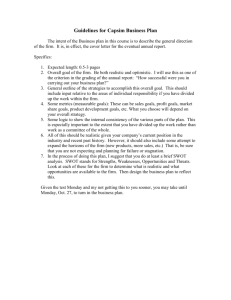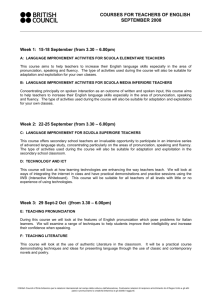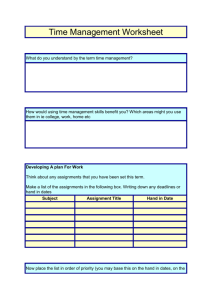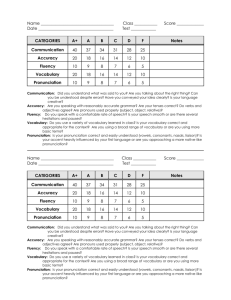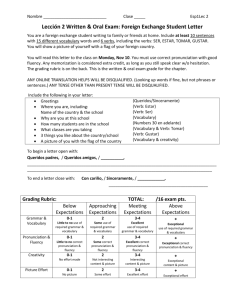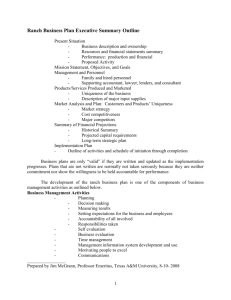Characteristics of effective goals:
advertisement
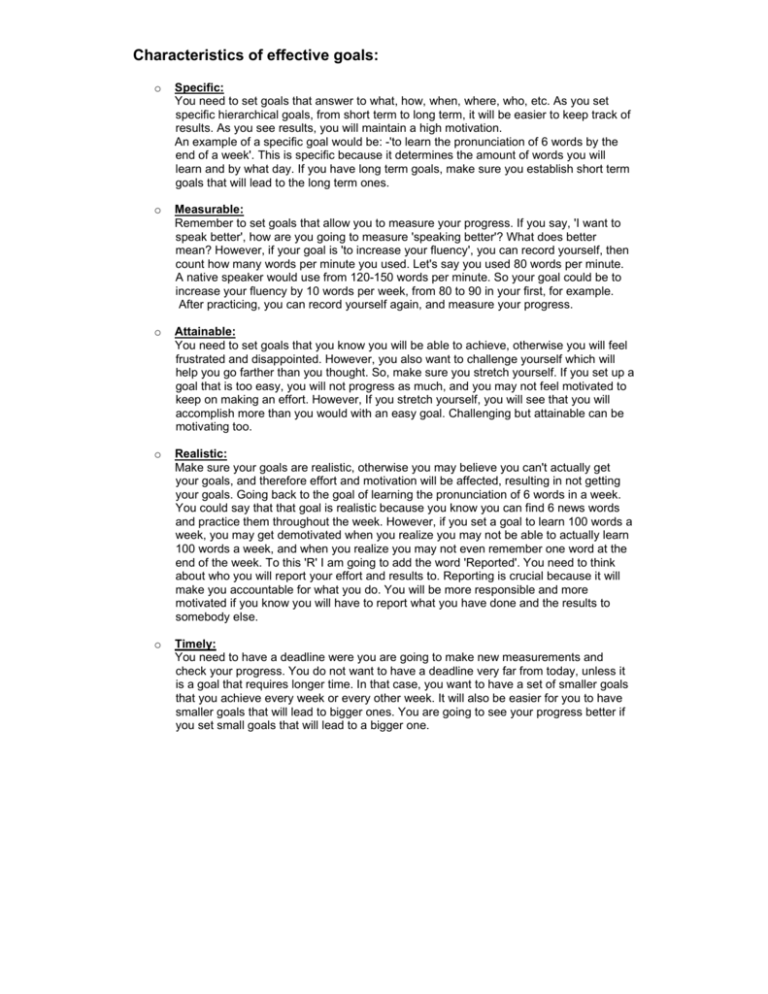
Characteristics of effective goals: o Specific: You need to set goals that answer to what, how, when, where, who, etc. As you set specific hierarchical goals, from short term to long term, it will be easier to keep track of results. As you see results, you will maintain a high motivation. An example of a specific goal would be: -'to learn the pronunciation of 6 words by the end of a week'. This is specific because it determines the amount of words you will learn and by what day. If you have long term goals, make sure you establish short term goals that will lead to the long term ones. o Measurable: Remember to set goals that allow you to measure your progress. If you say, 'I want to speak better', how are you going to measure 'speaking better'? What does better mean? However, if your goal is 'to increase your fluency', you can record yourself, then count how many words per minute you used. Let's say you used 80 words per minute. A native speaker would use from 120-150 words per minute. So your goal could be to increase your fluency by 10 words per week, from 80 to 90 in your first, for example. After practicing, you can record yourself again, and measure your progress. o Attainable: You need to set goals that you know you will be able to achieve, otherwise you will feel frustrated and disappointed. However, you also want to challenge yourself which will help you go farther than you thought. So, make sure you stretch yourself. If you set up a goal that is too easy, you will not progress as much, and you may not feel motivated to keep on making an effort. However, If you stretch yourself, you will see that you will accomplish more than you would with an easy goal. Challenging but attainable can be motivating too. o Realistic: Make sure your goals are realistic, otherwise you may believe you can't actually get your goals, and therefore effort and motivation will be affected, resulting in not getting your goals. Going back to the goal of learning the pronunciation of 6 words in a week. You could say that that goal is realistic because you know you can find 6 news words and practice them throughout the week. However, if you set a goal to learn 100 words a week, you may get demotivated when you realize you may not be able to actually learn 100 words a week, and when you realize you may not even remember one word at the end of the week. To this 'R' I am going to add the word 'Reported'. You need to think about who you will report your effort and results to. Reporting is crucial because it will make you accountable for what you do. You will be more responsible and more motivated if you know you will have to report what you have done and the results to somebody else. o Timely: You need to have a deadline were you are going to make new measurements and check your progress. You do not want to have a deadline very far from today, unless it is a goal that requires longer time. In that case, you want to have a set of smaller goals that you achieve every week or every other week. It will also be easier for you to have smaller goals that will lead to bigger ones. You are going to see your progress better if you set small goals that will lead to a bigger one.

